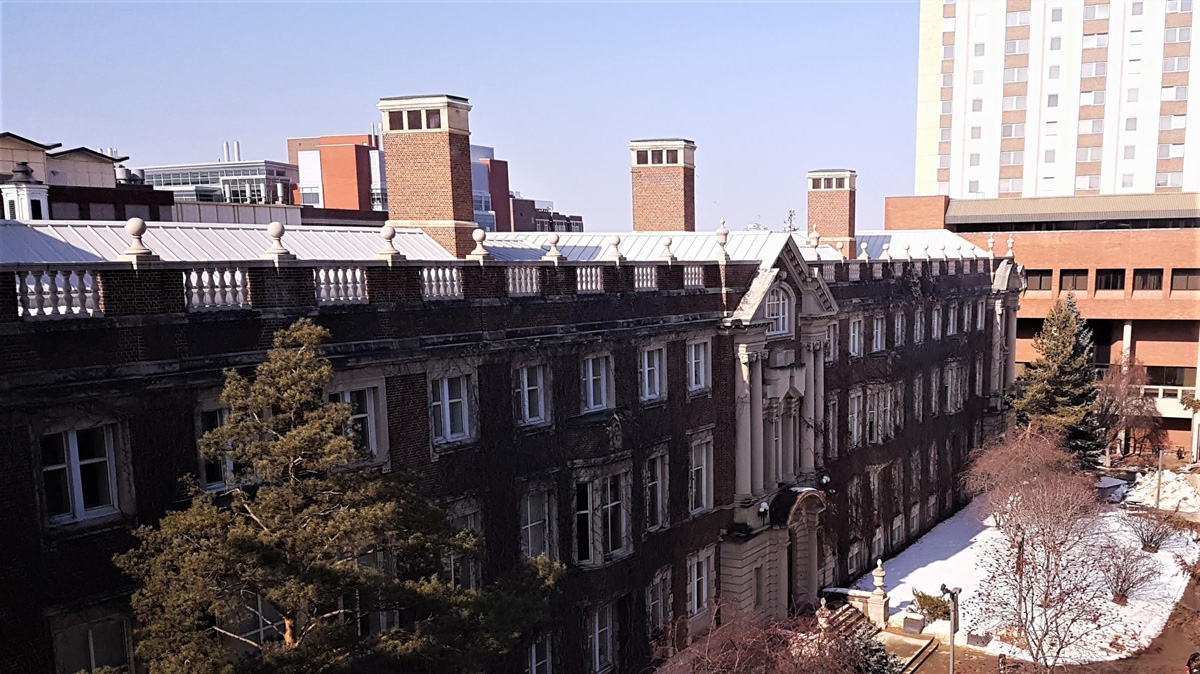U of A to vote on terminating a dozen arts programs due to low enrollment
 Haley Dang
Haley DangAfter May 28, the University of Alberta may be terminating eight Modern Language and Cultural Studies (MLCS) majors and four other arts programs.
The programs up for termination include:
- Majors in Italian studies, Russian language and literature, Ukrainian folklore, and Ukrainian language and literature.
- Combined majors in French and Italian, German and Scandinavian, Italian and Spanish, and Russian and Ukrainian.
- Middle Eastern and African Studies (MEAS)
- The Bachelor of Music routes in music history, school music, and world music.
Also up for termination is the individualized major and minor, which allows a student to propose a customized field of study that might include aspects from varying disciplines. The student would have to design their own course requirements and justify that their proposed major is distinct from existing ones.
The future of these programs will be decided at General Faculties Council, the highest academic decision-making body in the university. Admission to the programs was suspended in 2014, with the Faculty of Arts citing low enrollment numbers for the decision.
The termination of the eight language majors coincides with a transition within MLCS where the department is moving from majors in individual languages into an umbrella MLCS degree, while still allowing students to specialize in a language or field of study. The restructured program is expected to take effect in 2019, and will only affect students entering the department that year.
While further students were not allowed to enter the programs, students who were in them were given time to complete their degree. Information from the Faculty of Arts said only 18 students were enrolled in the programs since their suspension in 2014, all of whom have since graduated.
Lesley Cormack, dean of the Faculty of Arts, said the programs were suspended after an examination of their enrollment numbers, with Ukrainian folklore having two students majoring in it in the last five years.
“These were programs that really did not have student interest over a long period,” Cormack said. “We still have lots of people taking those languages in their first and second year, but very very few who were majoring.”
Although students can no longer major in those language subjects, Carrie Smith, the chair of MLCS, said students can still pursue a minor in them as well as other courses.
“While it’s termination of majors on paper, it is not terminations of programs or program offerings,” Smith said. “When it comes to actual experiences of students, there is no change because these programs are still running.”
Students felt impact four years ago when programs were suspended
Cormack, Smith, and Students’ Union’s vice-president (academic) Akanksha Bhatnagar said the impact of these program terminations on students is minimal at this point. However, some students were critical of the move to suspend them four years ago.
Tymothy Jaddock, who completed his minor in Ukrainian folklore in 2017 and was president of the Ukrainian Students’ Society in 2013, said the U of A was not justified in suspending those language and cultural studies programs. He said by doing so, the university is saying they’re not important to students or to society.
“The important argument to be making here is what the role of a post-secondary institution is if it’s not to uphold these types of programs,” he said. “Is it to pump out doctors and lawyers? Is that what post-secondary education means to the University of Alberta? And if it does, that’s really sad.”
While the university allowed students enrolled in the programs up for termination to complete them, Jaddock said their suspension hindered his ability to do so.
“One of the things I encountered in completing my minor was that most of the courses I needed to complete the Ukrainian folklore minor… the University of Alberta didn’t actually offer,” he said.
Jaddock said that to complete his Ukrainian folklore minor, he had to take general courses in MLCS, then petition the dean to have them count towards his minor.
Similarly, Telisa Courtney, who was a student from 2013 to 2017, said they initially wanted to do a double major in psychology and MEAS. After the program was suspended, they tried to pursue a minor in it but found it to be too difficult as the classes they needed were few and far between, so they switched from MEAS to political science.
“I went to U of A specifically because of Middle Eastern and Africa Studies,” Courtney said. “If I wanted to double major in psychology and political science, I could’ve done that literally anywhere and it would’ve had cheaper tuition.”
However, Cormack said MEAS was suspended in 2014 because it was a “dysfunctional” program, and an evaluation was conducted before its suspension. She also said the faculty is working towards a new program or certificate in Middle Eastern studies.
“People who worked [in MEAS] did so with the best of intentions, but it just didn’t work,” Cormack said. “And so it needed to be reconceived from the ground up.”
And while Courtney said they’re glad those programs are coming off the course calendar, they said the impact of their suspension has already been felt.
“I guess I’m glad they’re formally terminating it because the courses are going to come off the books, so people aren’t going to waste their time trying to register for courses that haven’t existed for five years,” they said.
Correction: a previous version of the article did not mention that the termination of the eight language majors coincides with a restructuring of the MLCS department, where students enrolling in 2019 and onwards will work towards a degree in MLCS instead of an individual language or field of study.
Update (May 28, 10:15 p.m.): General Faculties Council voted to terminate the 12 programs. They will no longer appear on the calendar of programs available for study.




